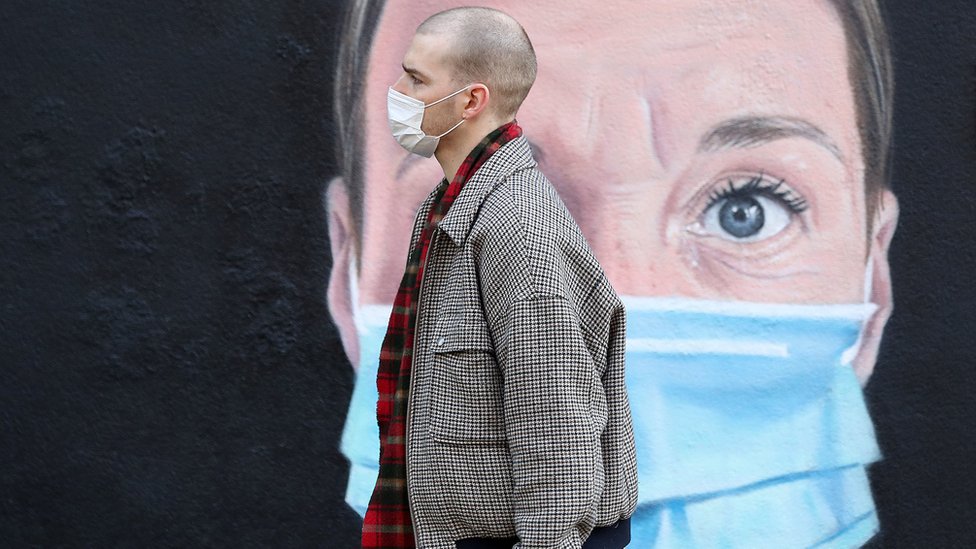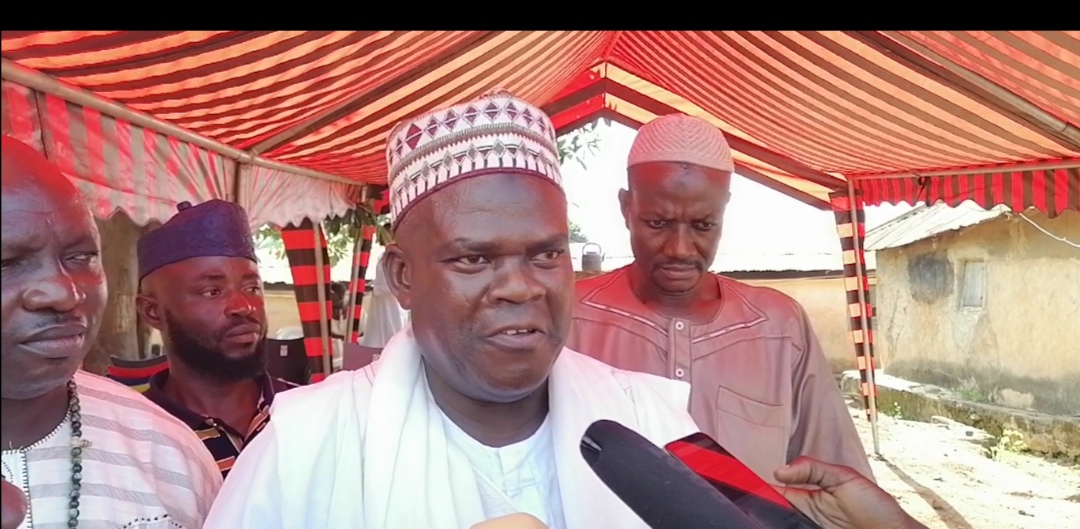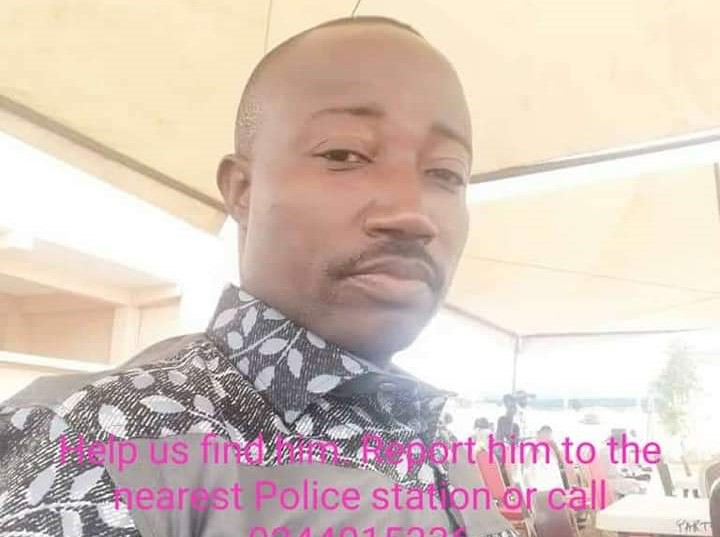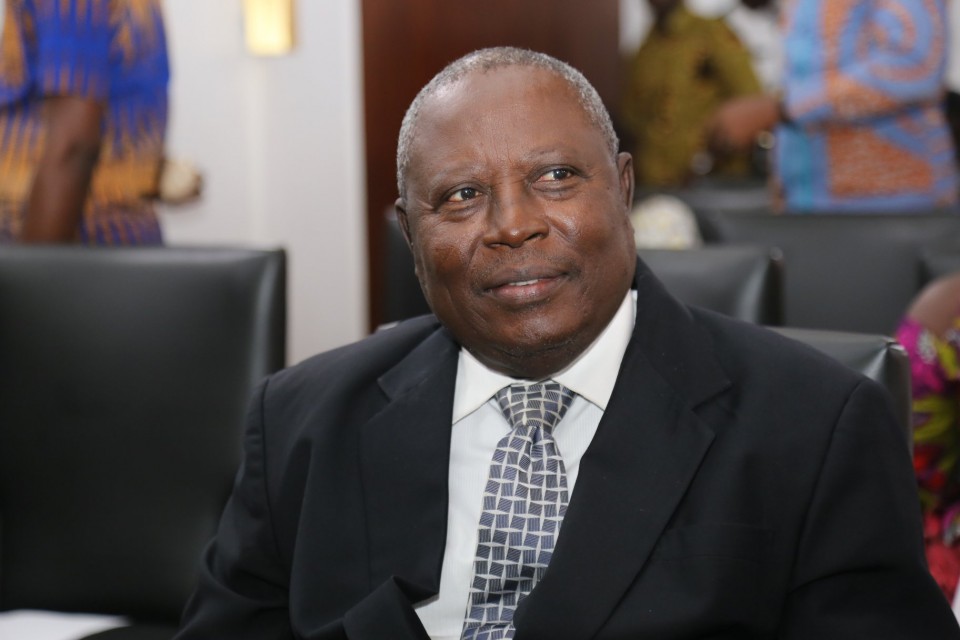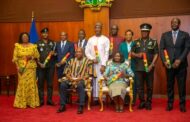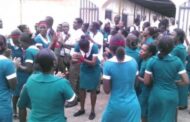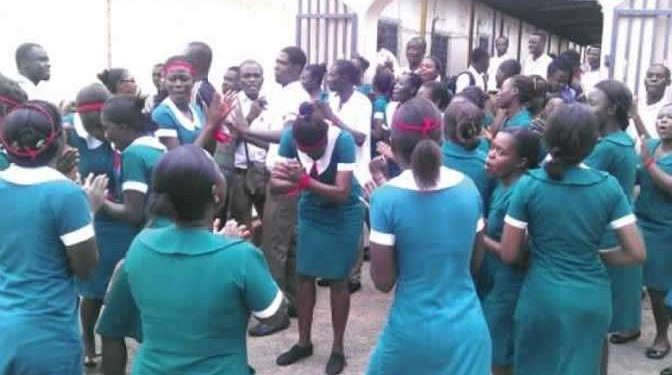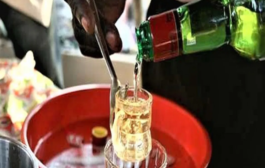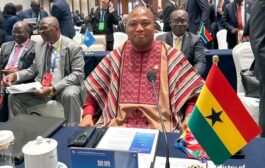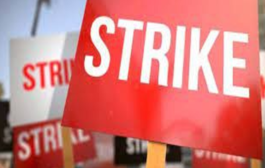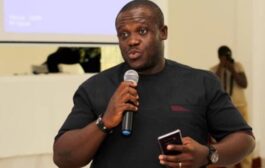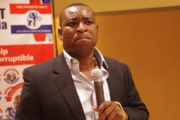England will begin a month-long lockdown on Thursday – with Boris Johnson saying acting now could allow families to spend Christmas together.
Pubs, restaurants, gyms, non-essential shops and places of worship will close, but schools, colleges and universities can stay open.
The announcement has sparked anger from some Tory MPs, and business leaders have warned of a “bleak midwinter”.
Mr Johnson is expected to deliver a statement in the Commons on Monday.
MPs will vote on the latest restrictions on Wednesday, and Labour has indicated it will back the lockdown.
But writing in the Sunday Telegraph, former Conservative leader Sir Iain Duncan Smith accused the prime minister of “giving in to the scientific advisers”.
Sir Iain said the Scientific Advisory Group for Emergencies (Sage) had “pressurised” the government into taking this decision, with its members “publicly lecturing” the government.
He urged Mr Johnson not to continue “encouraging businesses to reopen only to force them to lock down again”.
Under the new restrictions:
- People are being told to stay at home except for specific reasons
- These include work which cannot be done from home, childcare or education, exercise outdoors, medical reasons, essential shopping, providing care for vulnerable people or for volunteering, and visiting members of your support bubble
- Meeting indoors or in private gardens will not be allowed, but individuals can meet meet one other person from another household outside in a public place
- Non-essential retail will close, but can remain open for click-and-collect delivery
- Pubs, bars, restaurants must close, but can still provide takeaway and delivery, excluding takeaway of alcohol
- Indoor and outdoor leisure facilities, such as gyms and swimming pools, will also close, along with entertainment venues and personal care facilities such as beauty salons
- Places of worship will close, unless they are being used for funerals, to broadcast acts of worship, individual prayer, formal childcare, or essential services such as blood donation or food banks
- Construction sites and manufacturing workplaces can remain open
- Weddings and civil partnership ceremonies cannot take place except in exceptional circumstances, and funerals will be limited to a maximum of 30 people
- Children can move between homes if their parents are separated
- Clinically vulnerable people are asked to be “especially careful” but people are not being asked to resume shielding
- Overnight stays, staying in a second home, and holidays will not be allowed – including in the UK and abroad – although there are exceptions, such as work trips
- People should avoid all non-essential travel by private or public transport
Hours before the furlough scheme was due to end, the government said that it would be extended until December, covering 80% of employee wages.
Dame Carolyn Fairbairn, Confederation of British Industry director general, said extending furlough was a “vital step”, adding that affordable mass testing would be the “game-changer” for businesses, enabling more companies to stay open.
She said: “For many businesses, a second national lockdown marks the start of a bleak midwinter.”
Both the chief executive of the British Retail Consortium, Helen Dickinson, and the chief executive of the New West End Company, Jace Tyrrell, described the lockdown as a “nightmare before Christmas”.
Meanwhile, travel firms have warned of a “complete shutdown” across the industry when England goes into lockdown again and have called for the government to support the sector.
Boris Johnson’s announcement of a national lockdown for England prompted anger and frustration from some conservative MPs.
One described the handling and timing of the plan as a “shambles” and another said the case for lockdown presented by the prime minister had been “underwhelming”.
A member of the government said the prime minister’s reputation was at “rock bottom” on the backbenches.
In the Sunday Telegraph Sir Iain Duncan Smith said the PM was “giving in to the advice of his scientific advisors” and warned of “dire consequences” for the economy.
Earlier, vice chairman of the backbench 1922 committee Sir Charles Walker said the lockdown would be “utterly catastrophic” and that “come spring we won’t have a first world economy any more… our hospitality industry will be finished”.
Mr Johnson is facing criticism for not acting sooner after government advisers called for a short lockdown in September.
Labour leader Sir Keir Starmer said the government has “finally taken the decision it should have taken weeks ago”.
But he added that because of the delay, “the lockdown will be longer, it’ll be harder and there’s a human cost which will be very, very real”.
The British Medical Association also said it was “regrettable that warnings from Sage were not actioned as long ago as 21 September”.
Meanwhile, teaching unions in England said that schools urgently need new safety measures, such as moving to a rota system and smaller class sizes.
Prof Neil Ferguson, whose modelling was crucial to the decision to impose the first lockdown, said keeping universities and schools open meant infections would decrease more slowly this time.
The UK is not the only country that has seen the progress of the disease go the wrong way, with France and Germany acting in recent days.
But it is also true that Boris Johnson cannot say for a second that he was not warned.
More than six weeks ago, not just the opposition, but some of Mr Johnson’s own ministers, and some of his own advisers were pushing for another limited lockdown to try to slow the spread of the disease.
Conversations were active in government by the third week in September about the possibility of taking national action as the second wave was developing, potentially in a more serious way than the scale of the pandemic in the spring.
Mr Johnson said that after 2 December the restrictions would be eased and regions would go back to the tiered system already in place across England.
The measures were to prevent a “medical and moral disaster” for the NHS, he told a Downing Street press conference on Saturday.
He warned that Christmas may be “very different” but said he hoped taking action now would mean families can gather.
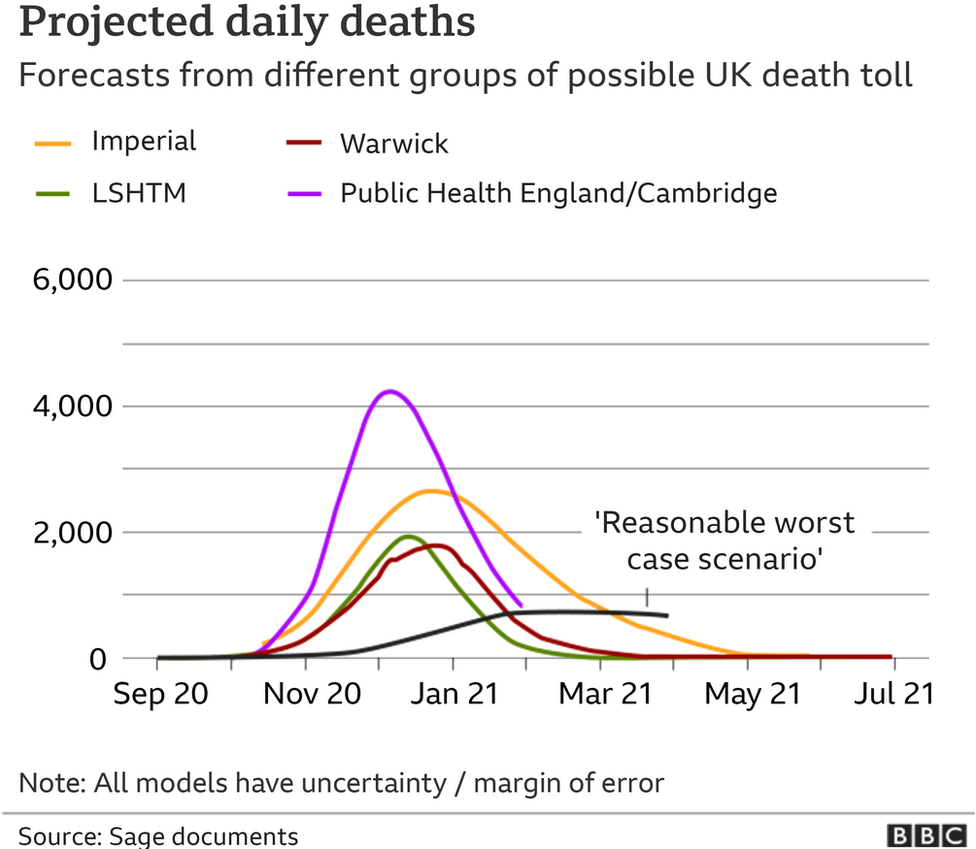
The UK recorded another 21,915 confirmed coronavirus cases on Saturday, bringing the total since the pandemic began to 1,011,660.
Another 326 people were reported to have died within 28 days of a positive test.
The UK is the ninth country to reach the milestone of a million confirmed cases – after the US, India, Brazil, Russia, France, Spain, Argentina and Colombia.
Almost 11,000 people are now in hospital with Covid-19, including 978 on ventilators.
A presentation by the government’s pandemic modelling group SPI-M shown to the PM and seen by the BBC included one forecast which suggested deaths could reach more than 4,000 a day if no action was taken.
Source: BBC



